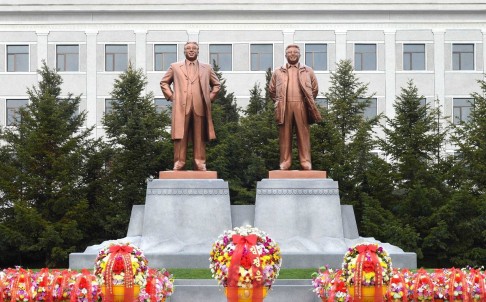- Joined
- Apr 5, 2013
- Messages
- 528
- Points
- 0
Analysis: It would not have taken much to shut down internet in North Korea
Its internet connections are negligible and are considered among most vulnerable to attacks
PUBLISHED : Wednesday, 24 December, 2014, 6:33am
UPDATED : Wednesday, 24 December, 2014, 6:33am
Reuters in Singapore

Analysis: It would not have taken much to shut down internet in North Korea
If someone did just knock North Korea off the internet for half a day, it wouldn't have taken much.
With barely 1,000 internet addresses, one internet service provider and one connection to the outside world via China, North Korea's cyberlinks are negligible - barely one per cent of that of Afghanistan, a similarly impoverished country with a roughly comparable population.
By the same token, closing down the links wouldn't have had much of an effect within North Korea. For internal online communications it uses a closed intranet network, but that was apparently not affected, according to officials across the border in the South.
North Korea is "one of the least connected countries in the world", said Matthew Prince, CEO of US-based CloudFlare, which, among other services, protects websites against web-based attacks.
It's also one of the most vulnerable, said Jim Cowie, chief scientist at Dyn, a US-based internet performance company.
"North Korea, historically, is fairly fragile," he said after internet access to North Korea was restored on Tuesday.
Internet links to the country remained snapped for several hours, but Cowie said the country had experienced outages of similar length this year.
The country is at the centre of a confrontation with the United States over the hacking of Sony Pictures, but several US officials said the US government was not involved in any cyberaction against Pyongyang.
Following the hacking, Sony had cancelled the release of a comedy about the fictional assassination of North Korean leader Kim Jong-un.
An outage of this kind could have been caused by one of several factors, according to CloudFlare's Prince.
North Korea may have disabled the internet itself, which could have been as simple as sending one command to a single router - possibily to seal the country from access to the movie and news about the confrontation it has been having with Washington.
It could also have been cut by China Unicom, the Chinese network that connects the country to the outside world. China has denied that it was involved.
Another possibility could have been a hardware issue, for instance, a router breaking down.
Then there's the possibility of an attack - meaning someone directed a flood of internet traffic at websites in North Korea until they, and eventually the country's entire network, ground to a halt. This is called a distributed denial of service attack because the flood is spread across hundreds of computers.North Korea's internet service is run by a joint venture between its Post and Telecommunications Corporation and Thailand's Loxley Pacific in Thailand.
Any attack on the network would have go through China Unicom's network, though it would be unlikely to affect it.
"This is a provincial network on the back of a provincial network," said Dyn's Cowie.
It's not known how much internet capacity North Korea has - how much traffic its network can tolerate before it is overwhelmed - but Prince reckons it could handle up to a maximum 10 gigabytes per second.
"It's not particularly challenging for an individual to launch an attack which completely saturated North Korea's access to the internet," Cowie said.
_____________________________________________________
North Korean human rights abuses on Security Council's agenda
The United States and other Western members of the UN Security Council slammed North Korea's human rights record after voting to overrule China's objections and add alleged grave abuses by the hermit state to the council's agenda.
US Ambassador to the United Nations Samantha Power described life in North Korea as a "living nightmare" and dismissed as absurd Pyongyang's demand for a joint US-North Korean investigation of the hacking of Sony Pictures and threats of retaliation if the United States refused.
North Korea rejected the council move and warned that decisions on how to respond would be made in Pyongyang.
The council meeting on North Korea on Monday came after a rare procedural vote sparked by China's objections to the inclusion of North Korea on the council's agenda.
There were 11 votes in favour, two against and two abstentions. Russia and China voted against the inclusion of North Korea on the council's agenda, but as there are no vetoes in procedural votes of the council, the Chinese attempt to defeat the measure failed.
China is Pyongyang's principal ally and protector.
Reuters
